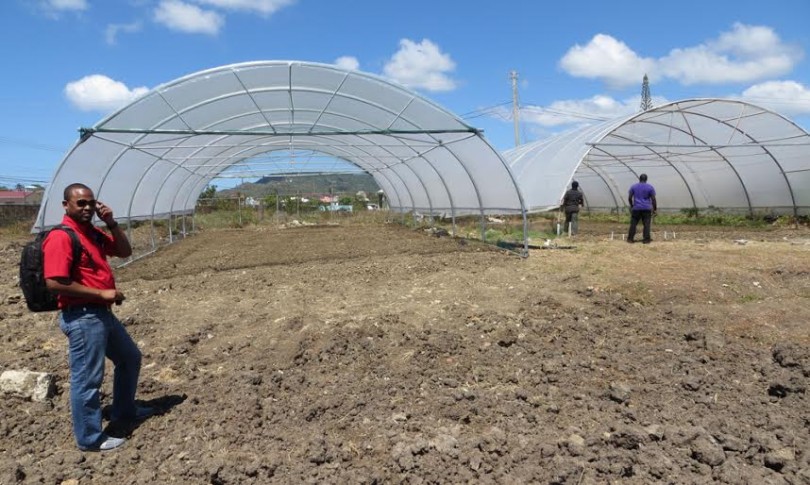This article was originally published on J.com in March 2016.
Food For The Poor is working with Taiwan’s Tse-Xin Organic Agriculture Foundation to plant 10,000 fruit-bearing trees on the campuses of 60 primary and secondary schools across the Caribbean country of St. Lucia. In addition to the fruit trees, Food For The Poor also will build 20 greenhouses to assist 20 basic schools with their individual feeding programs.
“St. Lucia is a beautiful mountainous island and Food For The Poor is honored to be a part of this tree planting project that will provide additional nourishment for students and a source of revenue for local famers,” said Robin Mahfood, President/CEO of Food For The Poor. “Ten thousand trees is a massive undertaking that’s being made possible by the generous donors of Food For The Poor and the Government of Taiwan’s Ministry of Foreign Affairs.”
For more than a decade, the Taiwan Ministry of Foreign Affairs, and the Taiwan International Cooperation and Development Fund have been cherished partners of Food For The Poor. Since 2007, Food For The Poor has received more than 5 million pounds of rice through Taiwan’s Ministry of Foreign Affairs for Haiti.
On Thursday, Food For The Poor was joined by Dr. Dame Pearlette Louisy, Governor General of Saint Lucia, Ambassador Ray Mou of the Republic of China Taiwan, and Li-yi Cheng, Director of Taiwan’s Tse-Xin Organic Agriculture Foundation in St. Lucia.
Dozens who attended the event were greeted with songs by students from the Vieux Fort Comprehensive Secondary School Choir. But the highlight of the ceremony was when special guests, including Ms.Cheng, took part in the symbolic planting of the fruit trees. Ms. Cheng arrived in Florida from Taiwan on Tuesday to meet with Food For The Poor’s President/CEO before heading to St. Lucia for the first time to attend the inauguration ceremony.
“Trees are disappearing very fast from the world. In Taiwan, we plant and grow a lot of trees, but it’s important to make this impact in the rest of the world. We have an opportunity to make a difference and we’re starting with St. Lucia, which can become the model used by others to help restore tropical rainforests in the future,” said Li-yi Cheng. “It was very important for us to find the right organization to partner with. Food For The Poor has a very good reputation and we believe our donation towards the tree planting project will be used appropriately.”
The species of trees are comprised of a variety of 25 fruit-bearing plants that are grown locally in St. Lucia, including cocoa, coffee, soursop, sugar apple, and citrus.
In addition to the trees, 30 solar-powered and 30 electric-powered NComputing systems will be divided among the 60 schools. Each NComputing system can turn one PC into a multi-user host with seven workstations. Each workstation will have a monitor, keyboard and a mouse to provide computer access to students in St. Lucia’s remote areas.
Food For The Poor also will provide bee training to15 farmers from various rural communities. Each farmer will receive bee farming equipment and honey production training. Beekeeping has the potential to generate a consistent source of income through the production of honey and hive byproducts, such as beeswax.
Food For The Poor has been working to serve the people of St. Lucia for more than 30 years thanks to its in-country partnerships with the Caritas Antilles Chancery Offices and through its generous donors.
Food For The Poor, one of the largest international relief and development organizations in the nation, does much more than feed millions of the hungry poor in 17 countries of the Caribbean and Latin America. This interdenominational Christian ministry provides emergency relief assistance, clean water, medicines, educational materials, homes, support for orphans and the aged, skills training and micro-enterprise development assistance, with more than 95 percent of all donations going directly to programs that help the poor. For more information, please visit www.FoodForThePoor.org.

